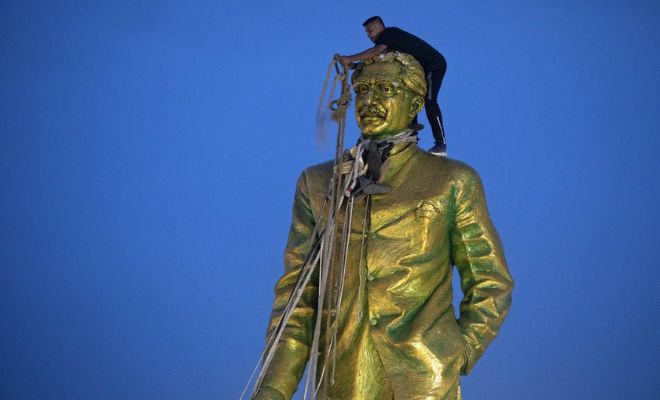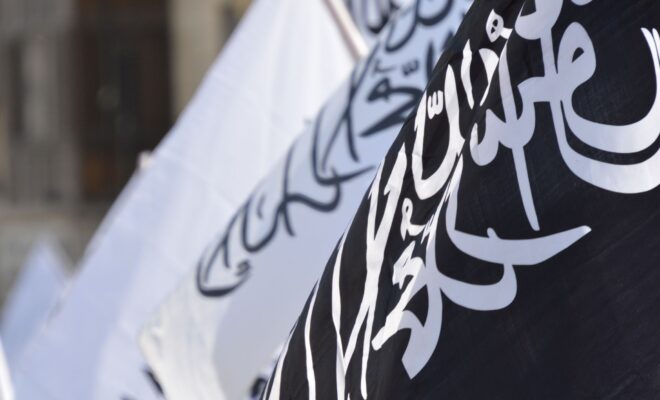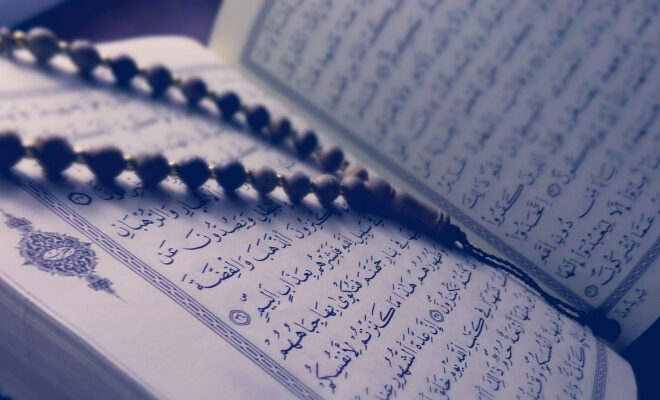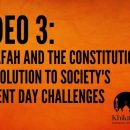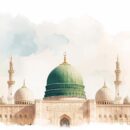Imran Khan’s Last ‘Over’ – It is a Rigged Game
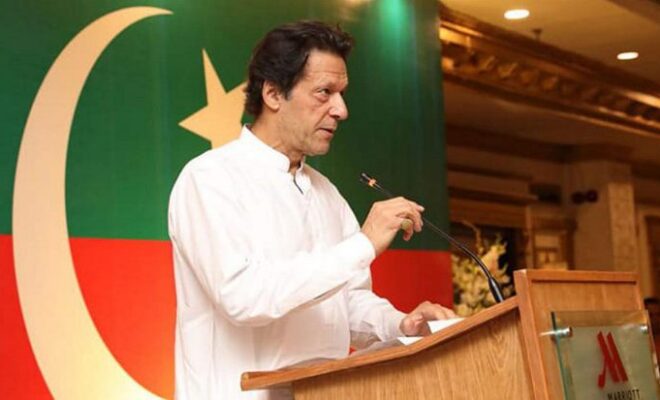
The beginning of April and the middle of Ramadhan has seen turmoil throughout Pakistan. We have seen the ouster of Imran Khan’s minority government at the hands of a unified opposition through a vote of non-confidence in the National Assembly.
This has led to mass protests in the streets, with many feeling that his ouster is part of a foreign conspiracy against Pakistan, due to his perceived opposition to US foreign policy. Khan himself has made much of this theory, claiming to have documented evidence of such a conspiracy.
It is important to remember that Imran Khan’s ascent to power was supposed to represent a radical change to Pakistani politics. He succeeded Nawaz Sharif; a leader convicted of corruption by Pakistan’s National Accountability Board and ruled unfit to hold office by the supreme court.
Imran Khan described himself as a “tsunami” against decades of neglect, corruption, and mismanagement. He spoke of a Pakistan that was self-reliant, that applies the rule of law to the powerful and the weak alike, and that took care of the welfare of the people.
He labeled this model of politics “Riyasat-e-Madinah”, or the Madinah State model established by our beloved Messenger (saw).
What is the reality of Imran Khan’s track record, and what can we learn from his departure?
Cosmetic Change
Imran Khan’s rhetoric was not matched by his actual political ambition. He did not fundamentally transform Pakistan’s economic, political or judicial institutions. His talk of self-reliance did not stop him from further drowning Pakistan into IMF debt, something he had committed he would never do before assuming power.
What is more, he even relinquished control of Pakistan’s state bank at the behest of the IMF
His talk of maintaining the rule of law did not stop him from inviting many of the same crooked politicians from other parties into his own party, under the rationale of them being ‘electable’; many of these party members would later go on to betray him and do great damage to his party.
And his rhetoric of protecting the weak from the abuses of the powerful did not move him to do something about the enforced disappearances in Pakistan. His own parties bill on missing persons vanished into thin air before it could even be voted on. What is more, his party supported legislation that would shield the military from legitimate criticism, even though they are the most powerful and the best-funded institution in the state.
And let us not forget his cozying up to China to the extent where he refused to acknowledge the genocide it is committing against the Uyghur people. Or his capitulation to India’s increased dominance in Kashmir, doing nothing more than making some empty statements, and even releasing their pilot who had been deftly shot down and captured by the Pakistani military.
It should be clear that the changes Imran Khan was allowed to perform were merely cosmetic. He was allowed into power by Pakistan’s military deep state in order to bring back some legitimacy into a system that had employed tyrants or open crooks as heads of state for decades prior to him.
What Happened?
Regardless of the limited scope of Imran Khan’s reforms, his commitment to some level of accountability for Pakistan’s ruling dynasties was not tolerable to the civilian or military elites.
The opposition parties, unified in the Pakistan Democratic Movement, used every means of maneuvering and bribery to stitch together a successful majority against the ruling PTI. And the judiciary and military establishment, even as they could see the corrupt opposition gathering the steam to do this, did not stand in their way.
Imran Khan tried to defer to both the judiciary and the military to keep him in power, citing the blatant corruption of the opposition, and implying they were acting at the behest of a foreign power. When he realized he had been abandoned by all these power centers, he accepted the results of the no-confidence motion and vacated his position.
Democracy is a Rigged Game
What should be clear to us is that Imran Khan’s treatment at the hands of Pakistan’s democratic institutions is not unique, or an aberration.
The concentration of wealth and power in the hands of a corrupt elite is a natural result of the democratic system. In any liberal democracy, it is the wealthy that have the ability to finance elections, influence laws and regulations, and create lobby and interest groups.
This is because in a democracy, there are no fixed values or systems. Rather, laws are made based on the whims, biases, and interests of “the people”, and the wealthy have the power and funds to shape these whims, biases, and interests.
In the case of the Muslim lands, including Pakistan, there is the added misery of this corrupt economic and military elite being loyal to their even wealthier masters in the Capitalist colonial powers. This means that the ultimate decisions on the use of the Ummah’s immense human capital, rich natural resources, and centuries of accumulated knowledge are made in Washington and London, not in the Muslim lands.
What this means is that no matter how sincere one is to the nation, if they choose to gain power through the existing democratic structures, they will have to share power and make compromises with the corrupt political elite. They will have to defer to the Western nations, and their institutions such as the UN, the IMF, and the World Bank, when making decisions about their own domestic and foreign policy.
Rising Above Personalities and Symbols
Once we have understood that the cause of the economic, social, and political stagnation in Pakistan is caused by the democratic system, we should be able to recognize the nature of the trap the people of Pakistan are in, and what it would take to get out of it.
It does not matter if a leader is not personally corrupt. It does not matter if they refer to ayat of the Noble Quran and the examples of RasulAllah (saw) and his companions in their speeches. It does not even matter if they are sincere. Rather, unless they are willing to use their political acumen and capital to uproot the entire system of parliament, courts, and military establishment that imposes liberal democracy on Pakistan, they will end up being used and discarded by the system.
There is no way to manipulate or trick the system into becoming honest, it is built this way. The solution to corruption is not more democracy; rather, democracy is the corruption.
It is time we start giving our loyalty only to those who are willing to overthrow this unjust system of rule, and not waste our limited time and efforts behind those who are all symbols and no actions.
Real Change
The need for real change and not just symbolic reform is a vital issue for us as Muslims. This is because we are the nation that is supposed to implement the comprehensive Guidance given to us by our Most Wise and Merciful Creator.
Allah (swt) tells us in the Quran:
“And judge between them by what Allah has revealed, and do not follow their desires. And beware, so they do not lure you away from some of what Allah has revealed to you.” [TMQ 5:49]
This revelation from Allah (swt) includes guidance on all aspects of human life, from how we worship Allah (swt) in our homes, to how we organize the economy and judiciary in the land.
And because this guidance is not from any man, or group of people, but from the Creator Himself, it is free of any biases or mistakes. This is the guidance that we have to study, share with others, and try to implement in our lands through the method of our Beloved Messenger (saw). He (saw) did not share power with the Makkan elite who were torturing him and his companions, rather he formed a group of people in Madinah that were willing to remove their system of narrow tribalism and endless conflict and to submit to the justice and mercy of Islam.
The political parties, efforts, or personalities we support should be committed to doing the same. May Allah (swt) have Mercy on our Ummah in Pakistan and throughout the world.
“O mankind, there has come to you instruction from your Lord and healing for what is in the breasts and guidance and mercy for the believers. Say, “In the bounty of Allah and in His mercy – in that let them rejoice; it is better than what they accumulate.” [TMQ: 10:57-58]

